
by Toni Schindler | December 1, 2021 | Blog, Buying or Building a New Home, Carbon Filter, Water Softener, Water Treatment Systems
When you think of having to deal with a sales person, do you dread it? Do you want to avoid it at all costs? Wouldn’t it be easier if you could just get a quote for water treatment equipment right over the phone?
We’ve all had an experience with a salesperson that was just unpleasant and we would like to avoid. But for water treatment, we do believe that it is important for us to have an on-site consultation with the customer.
Trust us, initially it would be easier for us to quote over the phone as well, but in the long run, it can have negative, costly and time-consuming consequences. Each customer’s water and water situation is unique. Even though it would be amazing, there isn’t a one-size-fits all solution.
Here are a few reasons why people call us:
- Avoid buying white clothes because they are immediately ruined with one wash
- Dread having company over because the smell of sulfur is overwhelming
- Dislike like the taste and smell of chlorine, or would prefer softer water from city water
- Hair is brittle and skin is itchy
- Concerned about the safety of the water
- Sick of scrubbing orange toilets, sinks and showers
- Dishes have white spots
- New fixtures ruined after one year
- Sick of water bottles lying around the house
- Unable to find someone to service equipment purchased online or at a box store
All of these situations are unique and would require different types of water treatment equipment.
If you are experiencing any of the above, you deserve to have a system that helps treat these issues. One of our core values is to do our best to make the entire process of taking control of your water easy!
Our Process
In our free on-site consultation we listen to our customers wants and needs. We are looking to understand what they are hoping for out of their water and learn the make-up of the water. We will want to know:
- How many persons are in the home?
- What type of plumbing and space do we have for the equipment?
- Will there need to be any outside spigots or barns on untreated water?
Next we test the water to discover the water make-up. Contaminants in water can occur in many different combinations. The most common types of water concerns in Northwest Ohio and Southeastern Michigan are:
- Hardness
- Iron
- Sulfur
- No water/Low Yield Wells/Untreatable Water
- Tannins
- Municipal (City) Water
Learn more about each of these types of water situations here.
This information will help us to recommend the appropriate treatment system, size it correctly for the home and provide a fair and accurate quote. It also allows us the opportunity to explain the operation of the equipment and what the customer can expect regarding upkeep and maintenance on their system-hopefully leading to less surprises in the future.
Let’s face it, we are all busy and your time is important!
During our short but thorough interaction, we also hope to gain your trust. Our goal is to partner with and listen to our customers to provide the water treatment solution for their wants and needs. An in-home consultation allows us to do this efficiently and accurately, ultimately providing our customers with peace of mind and ultimately quality of life!
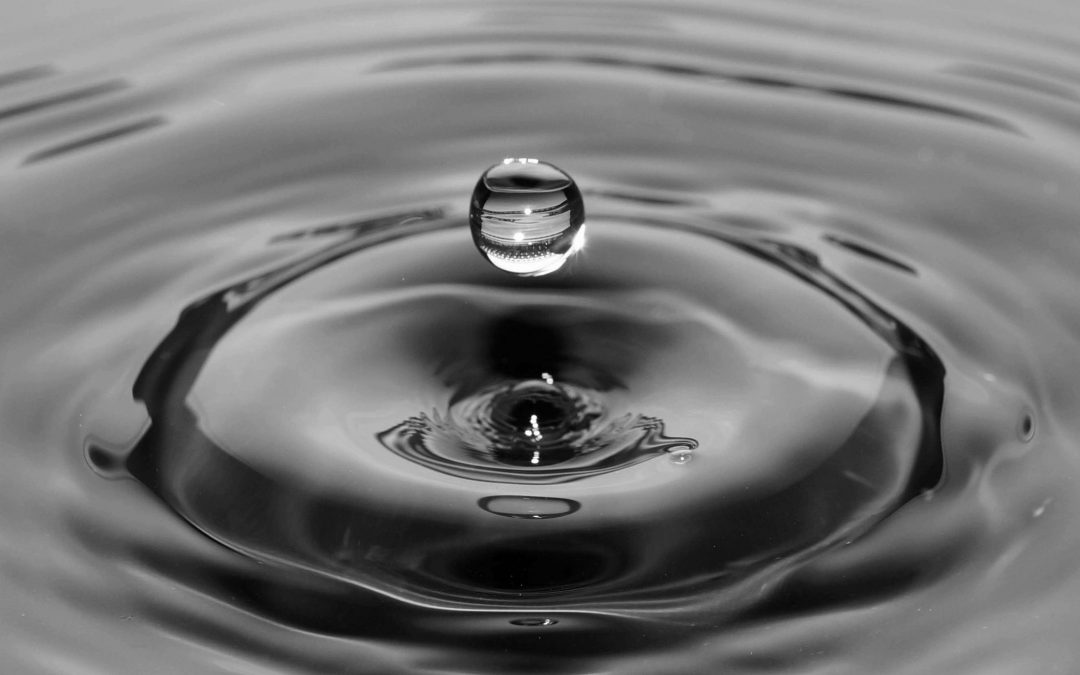
by Toni Schindler | July 17, 2020 | Blog
While we all would love to find nuggets of gold falling into our glass when turning on the kitchen faucet each morning, unfortunately, that isn’t a reality. Learn what can really be in our water!
Here in Northwest Ohio and Southeastern Michigan, water quality and water quantity varies widely. In some areas water is plentiful with deep flowing wells, while other areas have little to no water to tap into. Some regions have high iron content, while others have sulfur. And oftentimes, one homeowner’s water can have a completely different makeup than their nearby neighbor.
Hardness
Calcium and magnesium can build up causing hardness in water. It oftentimes leaves residue on plumbing and fixtures, as well as on dishes and glassware.
Tannins
Tannins water are a natural organic material caused by decaying vegetation and peaty soil. You can see the yellow color of the untreated Tannins water next to the treated Tannins water in this photo.
Iron
You can see little rusty/orange particles floating in this Iron Water.
Sulfur
In the picture, you’ll notice black fittings as a result of sulfur running through the pipes – those fittings should be brass in color.
Hardness
Water hardness is a common quality of water found in this region. Hard water contains dissolve compounds of calcium and magnesium, and sometimes, other metallic elements. This is what causes mineral deposits on dishes and glassware. It can cause soap to not lather. It can also cause extra work to remove soap crud on bathtubs and shower stalls, scale build up in pipes, sinks, tubs, faucets, and appliances.
Iron
Iron is also commonly found in water throughout this area. Most notably, it can cause staining in sinks, toilets, tubs, showers, and clothing. It can also be corrosive to pipes and fixtures.
Sulfur
Sulfur is a gas found in some water throughout our region that has a very distinct smell, and taste, comparable to rotten eggs. Untreated sulfur water can come out of the faucet black and can cause staining to sinks, toilets and clothing. It can be very damaging to plumbing and non-water using appliances such as TV’s, Microwaves, HVAC systems and more.
No Water, Low Yield Wells and Untreatable Water
No water, low yield wells, high sulfur content and salt wells can wreak havoc in some areas throughout the region. As a viable alternative, many utilize their pond for water into their home and barn. Pond water is filtrated through Pond Water Treatment Systems, approved by the Ohio Department of Health, and provide viable and safe water into the home.
Tannins
Also seen in our area are Tannins. Tannins are a natural organic material caused by decaying vegetation and peaty soil. This can cause a faint yellow to tea-like color in your water and can lead to staining on fixtures and clothing when laundered.
Municipal Water
Households and businesses who are in cities, towns and villages typically have municipal water that is treated and distributed by water treatment plants. Generally speaking, municipal water is safe to drink, bathe in and launder. However, many of our customers like having the piece of mind, and extra protection of having residential water treatment equipment installed that improves the quality and taste of their water.



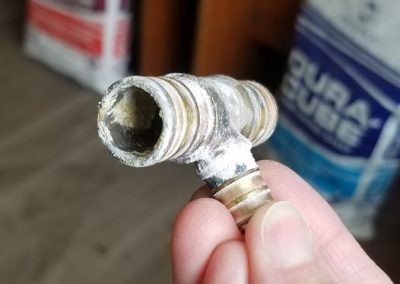
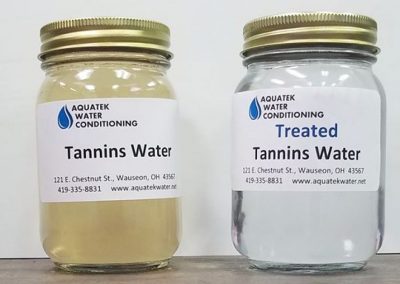
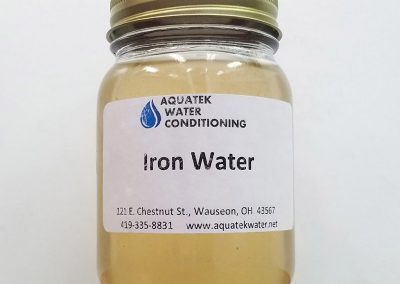
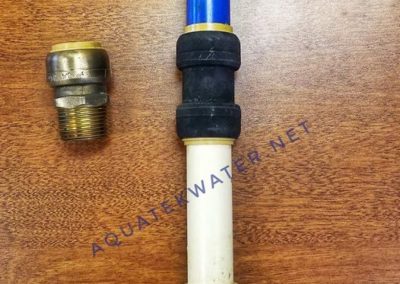
Recent Comments